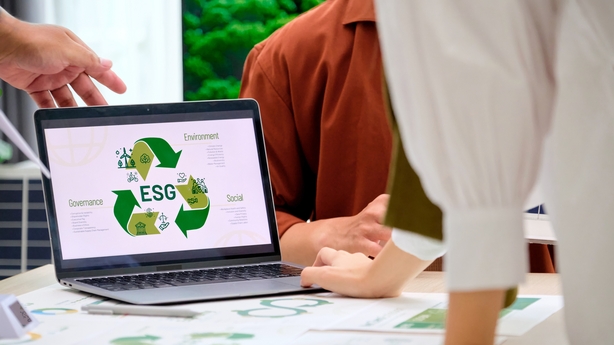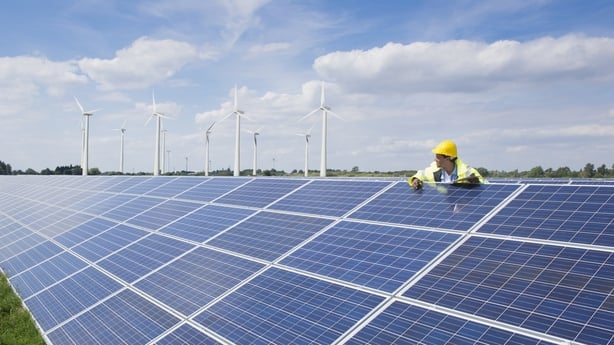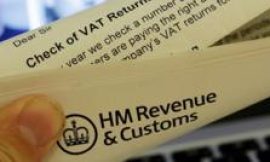Climate change is transforming the business landscape right across the world, bringing with it enormous challenges.
But it also brings opportunity for those prepared to adopt new practices and ways of working.
In reality, sustainability is no longer optional for companies.
“The business risks associated with not taking action are increasing rapidly and far outweigh the cost of change,” said Maria Kelly, Director of the Skillnet Climate Ready Academy, which helps Irish companies take action on sustainability and achieve maximum impact.
If you’re looking to make your business more sustainable in 2025, Ms Kelly has five tips to get you started.
How do I make my business more sustainable?

1. Have a sustainability action plan
Every business should have a sustainability action plan in place, she said.
This should set out your baselines, targets and key performance indicators, and will enable you to measure progress and be transparent.
“Equipping businesses with the skills and knowledge to develop an action plan is a key focus of our programmes such as our Sustainability Leaders Programme, which helps learners develop a Sustainability Action Plan that is aligned to the key topical areas of CSRD and the UN Sustainable Development Goals,” Ms Kelly said.
2. Make training and development a priority
Ongoing training and development should be prioritised, to ensure leadership teams and all employees have the skills to adapt to new ways of working.
Ms Kelly said skills gaps act as major barriers to achieving climate goals.
“Understanding and addressing their skills gaps will enable companies to transition in a way that is meaningful and will help prepare them for the challenges that are ahead,” she said.
3 Align business models to sustainability goals
In order to succeed, you should align your business models and strategies to your sustainability goals.
This takes time and focus, according to Ms Kelly.
“It is achieved when sustainability is a top down and bottom up priority and is embedded in the daily practices, processes and decisions that are core to how the business operates,” she said.
4 Establish a baseline for scope 1 and 2 emissions
The emissions a company controls directly are referred to as scope 1 and 2 emissions, while scope 3 involve suppliers.
Ms Kelly said you should establish a baseline for scope 1 and 2 emissions and then start looking at suppliers to determine how you can work together to reduce scope 3 emissions.
However, businesses need to look beyond emissions.
“They need to understand their current environmental impact on water, biodiversity, resource use and circularity and pollution,” Ms Kelly said.
“The world is facing multiple issues at once and it will be of no benefit to get to net zero if the natural ecosystems and biodiversity we all depend on have collapsed,” she added.
5. Report on progress
You should report regularly on your progress, and share your achievements and challenges with other organisations.
Ms Kelly said this helps to inspire and motivate others to take positive action.
What is the Skillnet Climate Ready Academy?

This national training initiative offers a number of sustainability related programmes for businesses.
The public programmes, which are funded by Skillnet Ireland and delivered by 20FIFTY Partners, are free for eligible businesses.
They aim to help companies prepare for the effects of our changing climate and environment.
“The programmes go beyond emissions reduction and offer a broader more holistic approach to sustainability that take into account planetary boundaries and are aligned to the key thematic areas of the Corporate Sustainability Reporting Directive,” Ms Kelly said.
“Our flagship programme, the Sustainability Leaders Programme, introduces learners to key sustainability concepts such as double materiality, stakeholder engagement and supply chain analysis to enable them to develop a robust strategy that is aligned to reporting requirements and internationally recognised frameworks such as the United Nations Sustainable Development Goals,” she added.
Are the new reporting rules having an impact?

The Corporate Sustainability Reporting Directive came into force last year.
It means that more large companies, as well as listed SMEs, are now required to report on sustainability as a result of the new EU law.
“Large organisations that are in scope are now required to report across 12 Environmental, Social and Governance (ESG) topics not only on the impacts and risks to their own operations but also on the impacts and risks to businesses in their supply chains,” Ms Kelly explained.
“This will have a significant trickle-down impact across the economy and presents an enormous challenge as well as an opportunity,” she added.
By placing ESG issues on the same playing field as financial reporting, Ms Kelly said businesses will have to integrate sustainability into their core values and business strategies.
Is sustainability a priority for Irish businesses?

The Skillnet Climate Ready Academy believes sustainability is becoming an increasing priority for Irish businesses, with more companies looking to avail of their programmes on offer.
“These businesses understand that they play a fundamental part in meeting our overall climate goals as a country and also that more effort is needed on building climate resilience,” Ms Kelly said.
“This in turn benefits society as we build resilience into our economy to withstand the shocks that are associated with our rapidly changing climate,” she added.
However, Ireland is playing catch up compared to other European countries.
A 2023 report by the European Investment Bank found that 22% of Irish firms have set climate targets compared with an EU average of 41%.
“This is clearly not where we need to be as a country,” Ms Kelly said.
“Businesses, policy makers and support agencies need to place a priority on skills development and education to help more businesses participate in the transition to a green economy.
“The businesses that are prepared are the ones that will benefit the most,” she added.




